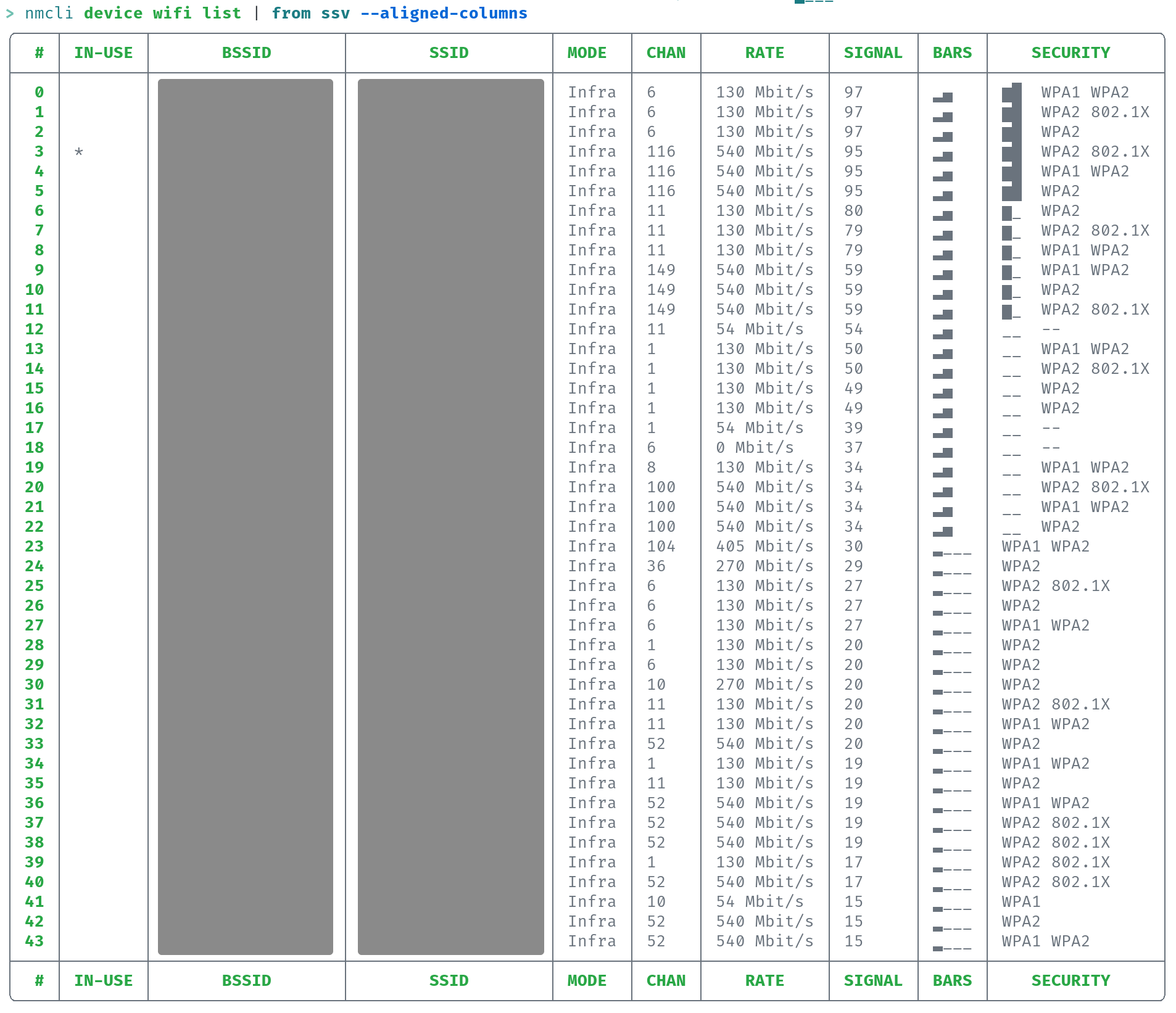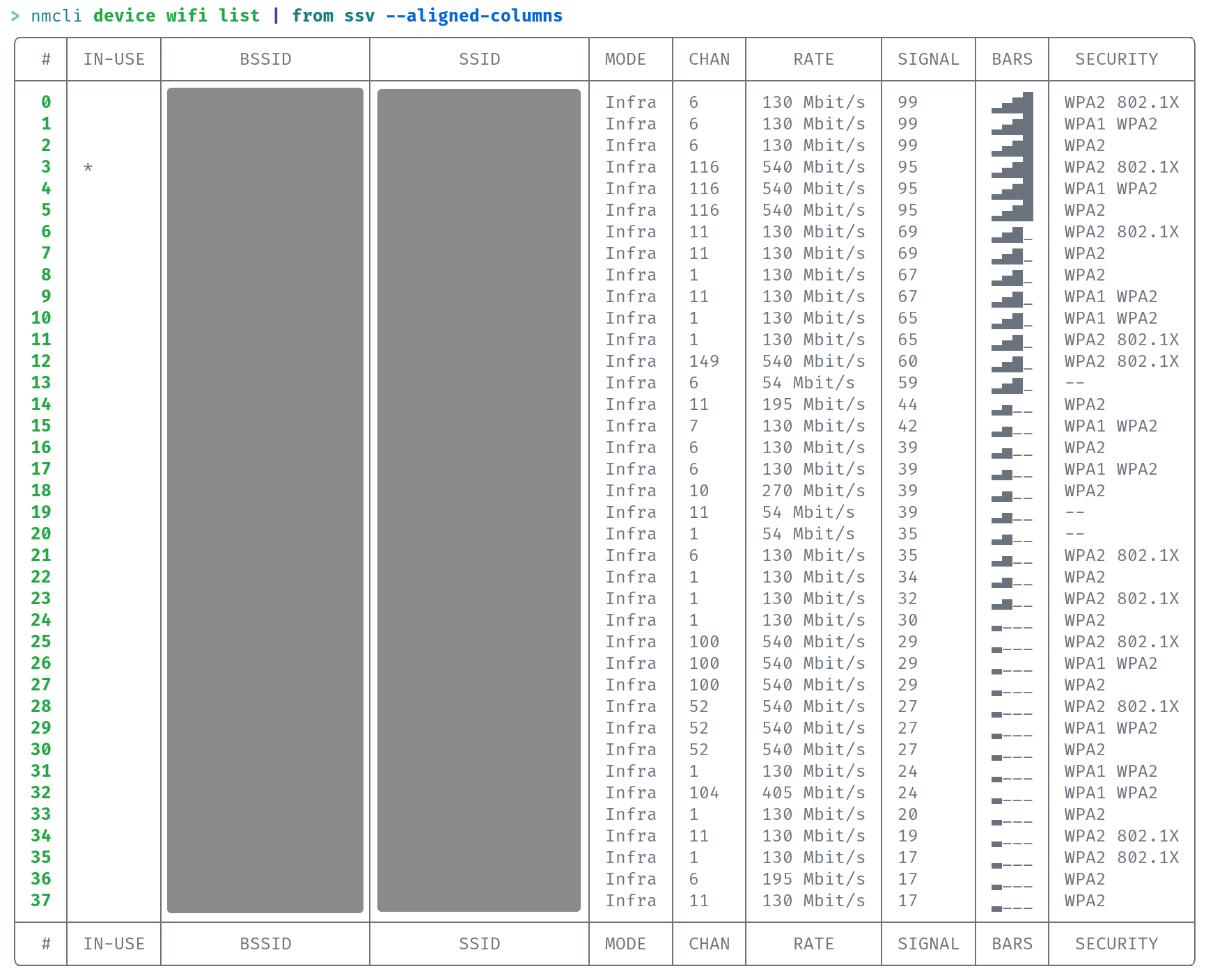mirror of
https://github.com/nushell/nushell.git
synced 2025-08-03 20:21:06 +02:00
# Description ## Symptom Lines which are input into `from ssv --aligned-columns` are split incorrectly of they contain utf-8 characters which have the length of multiple bytes. Notice how the values of the `Bars` column bleeds into the `Security` column in the following output (the big grey areas are censored data ;) ):  ## Problem The function behind `from ssv --aligned-columns` splits lines into fields by byte index (which is default behavior of str.get(...) in Rust) instead of character index. If the header row has a different length in bytes than the remaining table rows, the split is executed incorrectly. ## Solution The function behind `from ssv --aligned-columns1 now separates lines by character index instead of byte index. This productes the following (correct) output (the big grey areas are censored data ;) ): 
Nushell core libraries and plugins
These sub-crates form both the foundation for Nu and a set of plugins which extend Nu with additional functionality.
Foundational libraries are split into two kinds of crates:
- Core crates - those crates that work together to build the Nushell language engine
- Support crates - a set of crates that support the engine with additional features like JSON support, ANSI support, and more.
Plugins are likewise also split into two types:
- Core plugins - plugins that provide part of the default experience of Nu, including access to the system properties, processes, and web-connectivity features.
- Extra plugins - these plugins run a wide range of different capabilities like working with different file types, charting, viewing binary data, and more.